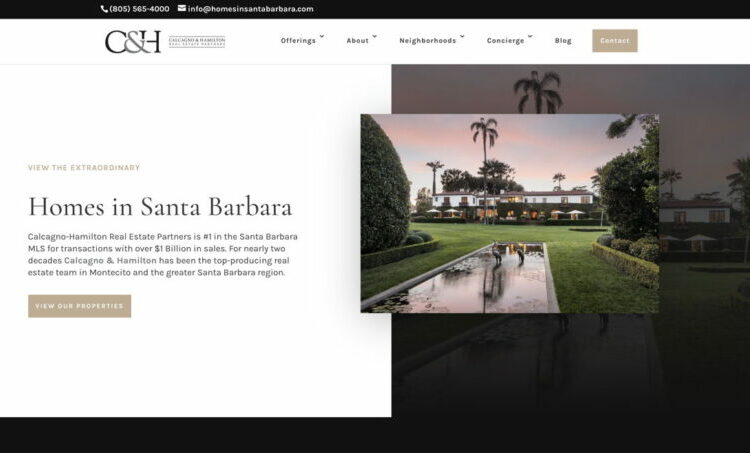The iBuyer market is booming, with Opendoor leading the charge in offering homeowners a seemingly effortless way to sell their properties. But is the convenience worth the potential trade-offs? A closer look at Opendoor real estate reviews reveals a complex picture, with some homeowners praising the speed and simplicity of the process while others express concerns about lowball offers and hefty fees.
Toc
Understanding Opendoor’s iBuying Model

Opendoor operates as a prominent player in the iBuying sector, providing homeowners with a streamlined method to sell their properties. The process is designed to be simple and efficient, beginning with sellers submitting their home details on the Opendoor website. Within 48 hours, they receive a preliminary cash offer, which can be an attractive feature for those looking for a quick sale.
Once the initial offer is accepted, Opendoor conducts both virtual and in-person inspections to evaluate the home’s condition. This assessment helps determine any necessary repairs, which may be deducted from the final offer. Sellers then have the flexibility to choose a closing date that aligns with their schedule, typically within a range of 14 to 60 days. On the day of closing, Opendoor pays off any outstanding mortgage balances and provides the seller with the remaining proceeds, minus applicable fees.
Fees Associated with Opendoor
Understanding the fees is crucial for potential sellers. Opendoor charges a service fee that generally hovers around 5% of the sale price. However, when factoring in repair costs and closing expenses, the total fees can often exceed 10% of the home’s value. For example, if you sell a $300,000 home through Opendoor, the service fee would be $15,000. However, if the inspection reveals needed repairs costing $10,000 and closing costs are $5,000, the total fees would reach $30,000, significantly exceeding the 6% commission a traditional agent might charge. This is an important consideration for homeowners who may be weighing the benefits of a quick sale against the potential financial implications.
Open Door Real Estate Reviews: The Pros and Cons

As with any service, open door real estate reviews highlight both advantages and disadvantages associated with selling a home through Opendoor.
The Benefits of Selling to Opendoor
Convenience:
One of the main attractions of Opendoor is the convenience it offers. Homeowners can sidestep the traditional hassles of preparing their homes for showings, hosting open houses, and negotiating with buyers. This streamlined process can be particularly appealing for individuals facing time constraints or those who prefer a less stressful selling experience.
Flexible Timelines:
Opendoor provides sellers the ability to select a closing date that suits their personal circumstances. This flexibility can be a significant advantage for those coordinating their home sale with the purchase of a new property or other life events.
Cash Offers:
Receiving a cash offer from Opendoor can provide peace of mind, as sellers do not have to concern themselves with the potential for a buyer’s financing to fall through. In competitive markets where time is of the essence, a cash offer from Opendoor can provide a sense of security and reduce the risk of a deal falling through due to financing issues.
No Listing Fees:
Unlike traditional real estate agents, sellers utilizing Opendoor do not incur commission fees. This can represent substantial savings for those prioritizing a quick sale over maximizing their sale price.
The Drawbacks of Selling to Opendoor
Lowball Offers:
2. https://kingjade.com.vn/mmoga-mmoga-top-selling-real-estate-agents-strategies-for-success-in-2024
3. https://kingjade.com.vn/mmoga-womens-real-estate-investors-network-reviews-find-your-perfect-fit
A common criticism found in open door real estate reviews is that Opendoor’s initial cash offers often fall significantly below market value. For instance, a home with a unique architectural style or a large, well-maintained garden might be undervalued by Opendoor’s algorithms, which primarily rely on data from comparable sales. This can lead to offers that significantly underestimate the true market value of such properties. However, it’s important to note that Opendoor’s offers are generated by algorithms that analyze market data, including recent sales of comparable properties. In some cases, their offers may accurately reflect the current market value of a home, particularly for properties that are typical and in good condition.
Substantial Fees:
While Opendoor’s service fee of 5% might seem comparable to a traditional agent’s commission, the additional repair costs and closing expenses can significantly increase the overall cost. For example, if you sell a $300,000 home through Opendoor, the service fee would be $15,000. However, if the inspection reveals needed repairs costing $10,000 and closing costs are $5,000, the total fees would reach $30,000, significantly exceeding the 6% commission a traditional agent might charge.
Lack of Negotiation:
Opendoor’s “take it or leave it” approach can leave sellers feeling powerless. Unlike traditional transactions where negotiations are standard, sellers may have limited recourse to advocate for a better offer or reduced repair costs.
Unpredictable Repair Costs:
The assessment of necessary repairs can sometimes be overly aggressive, resulting in substantial deductions from the final offer. Sellers may find themselves facing repair costs that they were unprepared for, adding to the overall financial burden of the transaction.
Limited Coverage:
As of August 2024, Opendoor operates in over 40 markets across the United States, including major cities like Phoenix, Atlanta, and Dallas. However, if you live in a smaller city or rural area, Opendoor might not be available, limiting your options for a quick sale. While Opendoor’s services are currently limited to specific markets, the company is actively expanding its reach to new areas. This expansion is driven by the growing demand for iBuying solutions, and it suggests that Opendoor’s services may become more widely available in the future.
Potential for Missed Opportunities:
Selling directly to Opendoor means bypassing the traditional market and potentially missing out on buyers who might be willing to pay a higher price for a unique property.
Factors to Consider When Choosing Opendoor

Deciding between Opendoor and traditional real estate agents is a critical choice for homeowners. Each option presents distinct advantages and disadvantages, making it essential to consider personal priorities and circumstances.
For sellers who prioritize speed and convenience, Opendoor may be the more suitable choice. Conversely, if maximizing the sale price is the primary goal, working with a traditional real estate agent could yield better results, despite a longer timeline.
The rise of iBuying platforms like Opendoor has led to the emergence of hybrid real estate models. Some homeowners are now opting to list their homes on the open market while simultaneously securing a cash offer from Opendoor as a backup option. This approach allows sellers to potentially maximize their sale price while also having the security of a guaranteed buyer.
Frequently Asked Questions
Q: How much does Opendoor charge?
A: Opendoor charges a service fee of around 5% of the sale price, in addition to repair costs and closing expenses. Total fees can range from 7.5% to 14% of the home’s value.
1. https://kingjade.com.vn/mmoga-the-best-crm-for-real-estate-investors-in-2023-a-comprehensive-guide
3. https://kingjade.com.vn/mmoga-mmoga-top-selling-real-estate-agents-strategies-for-success-in-2024
4. https://kingjade.com.vn/mmoga-womens-real-estate-investors-network-reviews-find-your-perfect-fit
5. https://kingjade.com.vn/mmoga-the-best-real-estate-masters-programs-a-guide-for-aspiring-developers
Q: Is Opendoor a legitimate company?
A: Yes, Opendoor is a legitimate real estate company. However, it has faced scrutiny and legal challenges regarding its business practices, particularly in relation to home valuations and marketing claims.
Q: Is selling to Opendoor worth it?
A: The worth of selling to Opendoor depends on the individual seller’s priorities and circumstances. If speed and convenience are paramount, Opendoor may be a viable option. However, for those aiming to maximize their sale price, a traditional real estate agent might be a better choice.
Q: Can I negotiate with Opendoor?
A: While Opendoor is not typically known for its flexibility, attempting to negotiate the final offer price and repair costs is still advisable. Your advocacy can improve your final outcome.
Q: What should I do if I receive a lowball offer?
A: If you receive a lowball offer from Opendoor, consider gathering data on recent sales of comparable homes in your area to support your case. You can use this information to negotiate or decide whether to explore other selling options.
Q: How does Opendoor determine its offers?
A: Opendoor uses a combination of algorithms, market data, and property inspections to determine its offers. They assess factors such as location, property condition, and recent sales in the area to arrive at a fair cash offer.
Q: What happens if I change my mind after accepting an offer?
A: Once you accept an offer from Opendoor, there may be limited options for backing out without penalties. It’s essential to read the terms and conditions carefully before accepting to understand your obligations.
Conclusion
Opendoor’s iBuying model presents a convenient and rapid method for selling homes in 2024. However, it is crucial to weigh the advantages and disadvantages carefully to determine whether it aligns with your needs. By comprehensively understanding the process, researching comparable sales, and considering alternative options, you can make an informed decision that meets your goals.
Ultimately, the choice between Opendoor and traditional real estate agents comes down to individual preferences and priorities. Whether your focus is on speed, convenience, or maximizing your home’s sale price, exploring all available options will empower you to make the best choice for your unique situation. By taking the time to assess your circumstances and the current market landscape, you can navigate the complexities of selling your home and find a solution that best fits your needs.





